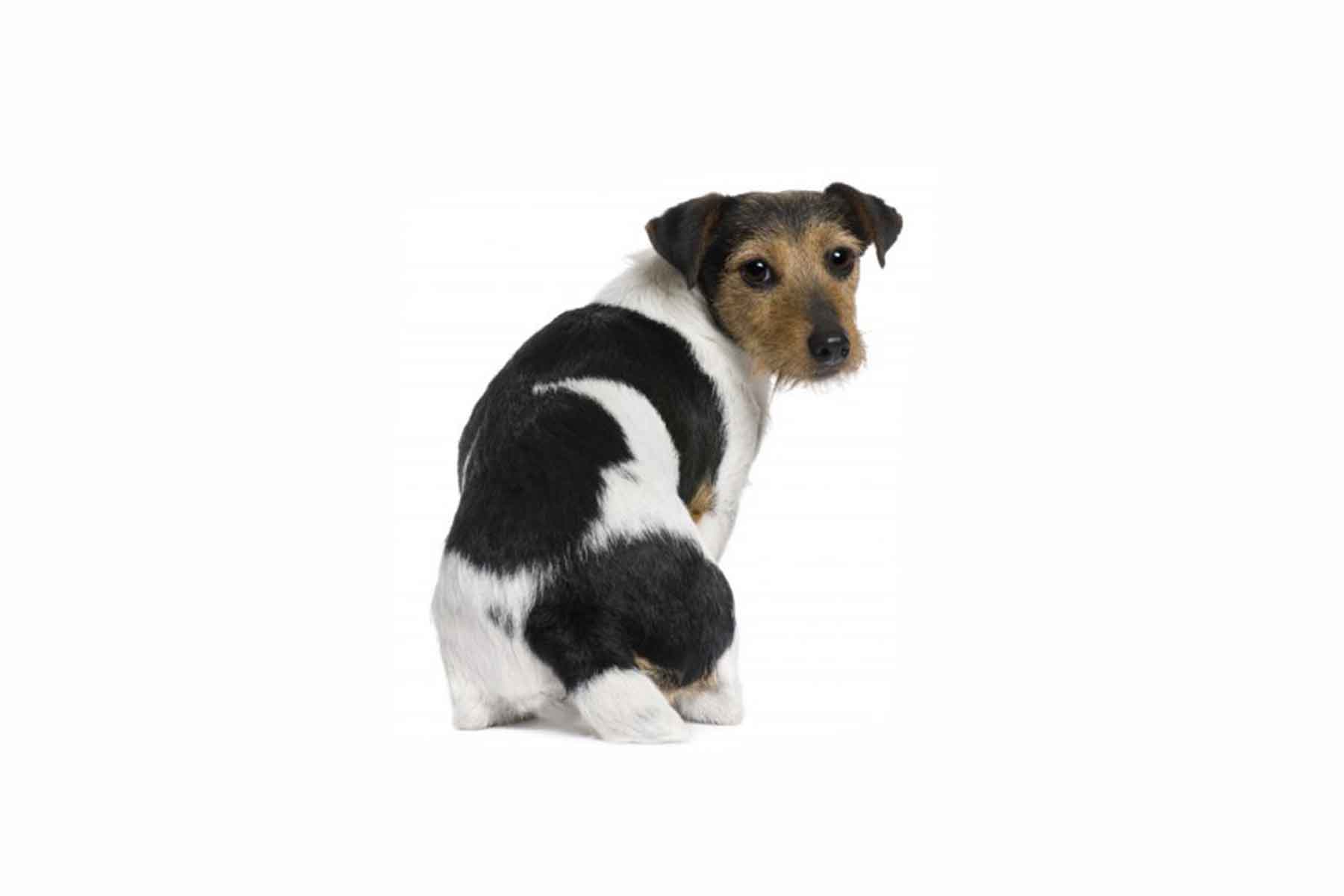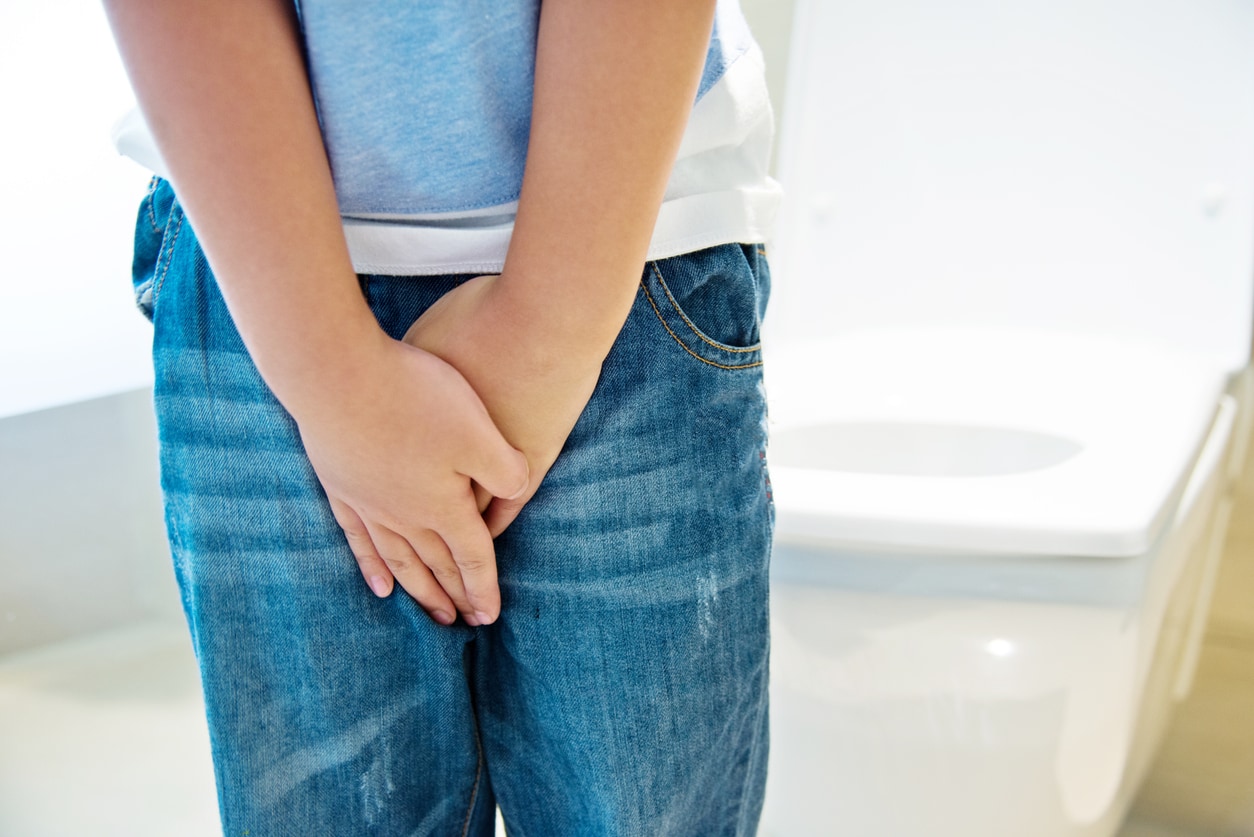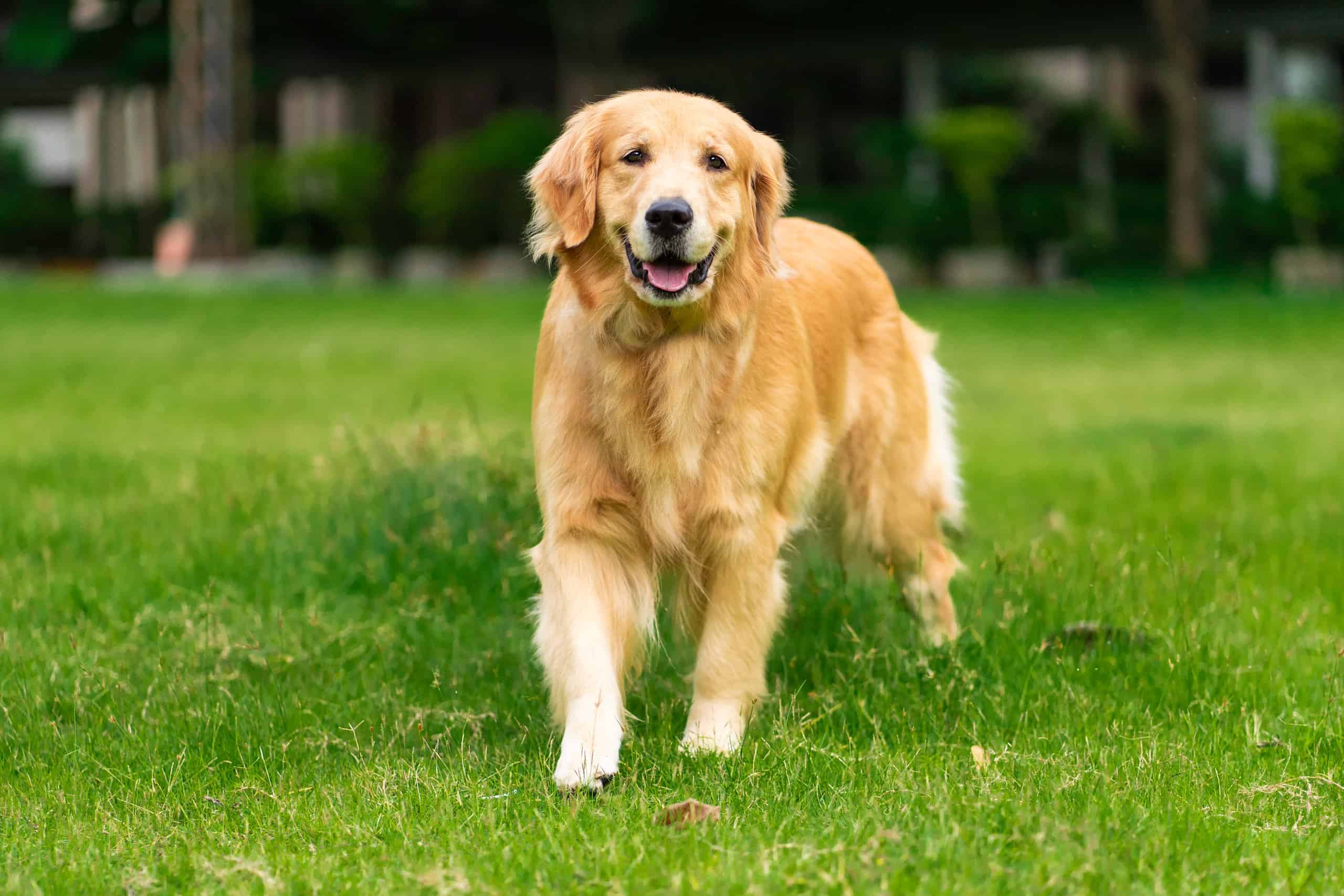

FAQs
What Causes Dog Flatulence
Modified: August 25, 2023
Discover the reasons behind dog flatulence in this informative guide. Learn about general questions related to this common issue and how to address it effectively.
(Many of the links in this article redirect to a specific reviewed product. Your purchase of these products through affiliate links helps to generate commission for Under-tec.com, at no extra cost. Learn more)
Table of Contents
Introduction
Flatulence, the passing of gas through the rectum, is a common and natural bodily function for both humans and animals. While it may be a source of amusement and embarrassment for humans, it can also be a cause of concern for dog owners. Canine flatulence can range from mildly unpleasant to downright offensive, and may even be accompanied by digestive discomfort or bloating in some cases.
Understanding the factors that contribute to dog flatulence is essential for ensuring the well-being of our furry friends. This article will delve into the various causes of dog flatulence, from dietary factors to medical conditions, and provide insights on how to manage and prevent excessive gas in dogs.
Flatulence in dogs can be a result of several factors, including diet, eating habits, underlying health conditions, and bacterial overgrowth in the gut. By becoming more knowledgeable about these causes, dog owners can make informed decisions regarding their canine companions’ diet and lifestyle to minimize flatulence and improve overall digestive health.
It’s important to note that occasional flatulence is generally normal for dogs, and the occasional passing of gas is not a cause for concern. However, persistent or excessively foul-smelling flatulence may indicate an underlying issue that warrants attention.
In the following sections, we will explore each of the contributing factors to dog flatulence in more detail. By gaining a deeper understanding of these factors, you will be better equipped to address and manage flatulence issues in your canine companion, ensuring their comfort and well-being.
Understanding Flatulence in Dogs
Flatulence, commonly known as passing gas or farting, is the result of the buildup and release of gases in the gastrointestinal tract. In dogs, flatulence is a normal physiological process that occurs as a byproduct of digestion. The process of breaking down food in the stomach and intestines produces gases such as methane, carbon dioxide, and hydrogen, which are then expelled through the rectum.
While flatulence is a natural bodily function, excessive gas can be uncomfortable and unpleasant for both dogs and their owners. When a dog experiences excessive flatulence, it can be a sign that something in their digestive system is not functioning optimally.
The frequency and intensity of flatulence can vary from dog to dog, depending on several factors, including breed, age, diet, and overall health. Certain dog breeds, such as Bulldogs, Pugs, and Boxers, are more prone to flatulence due to their unique physiological characteristics, such as a shorter snout and a tendency to swallow air while eating or drinking.
Understanding the underlying causes of flatulence in dogs is crucial for effectively managing and addressing the issue. While occasional flatulence is generally normal, persistent or excessively foul-smelling gas may indicate an imbalance in the digestive system or the presence of an underlying medical condition.
It’s important to observe your dog’s behavior and take note of any patterns or changes in their flatulence. If you notice a sudden increase in frequency or intensity, it can be helpful to keep a record of their diet, activities, and any other relevant factors to identify potential triggers.
In the next sections, we will explore the various factors that contribute to flatulence in dogs. By gaining a better understanding of these factors, you will be better equipped to address and manage the issue, ensuring the comfort and well-being of your furry friend.
Factors Contributing to Dog Flatulence
Several factors can contribute to flatulence in dogs. Understanding these factors will help you pinpoint the cause of your dog’s excessive gas and take appropriate measures to manage it effectively.
Diet: One of the primary factors influencing canine flatulence is diet. Dogs that consume diets high in indigestible carbohydrates, such as soy, beans, and certain types of grains, are more prone to excessive gas production. Additionally, feeding your dog table scraps or foods that are high in fat can lead to digestive issues and increased flatulence.
Food Allergies and Sensitivities: Just like humans, dogs can also develop food allergies or sensitivities. When a dog ingests a food that they are allergic or sensitive to, it can result in gastrointestinal distress, including flatulence. Common food allergens for dogs include beef, chicken, dairy, and wheat. Identifying and eliminating these allergens from your dog’s diet can help alleviate flatulence caused by food allergies or sensitivities.
Eating Habits and Behavior: How your dog eats and behaves during mealtime can also contribute to flatulence. Dogs that eat their food too quickly may gulp in excess air, leading to increased gas production. Additionally, dogs that scavenge for food or eat from the trash may consume indigestible substances that can cause digestive problems and gas. Encouraging slower eating and monitoring what your dog has access to can help reduce flatulence caused by eating habits.
Bacterial Overgrowth in the Gut: The balance of bacteria in your dog’s digestive system plays a crucial role in their overall digestive health. An overgrowth of certain types of bacteria, such as Clostridium or Escherichia coli, can disrupt the normal digestive process and contribute to excessive gas production. Probiotics and a balanced diet can help promote a healthy gut microbiome in dogs, reducing the risk of bacterial overgrowth and flatulence.
Medical Conditions: In some cases, excessive flatulence in dogs can be a symptom of an underlying medical condition. Gastrointestinal issues like inflammatory bowel disease, intestinal parasites, or pancreatic insufficiency can cause digestive disturbances and lead to increased gas production. If you suspect that your dog’s flatulence is due to an underlying medical condition, it is recommended to consult with a veterinarian for a proper diagnosis and treatment.
In the following sections, we will delve deeper into each of these factors and provide more insights into how to manage and prevent flatulence in dogs.
Diet and Dog Flatulence
The diet plays a significant role in a dog’s digestive health and can greatly impact the occurrence of flatulence. Certain types of food can be more difficult for dogs to digest, leading to increased gas production. Understanding how different dietary factors contribute to flatulence can help you make informed decisions about your dog’s nutrition.
Indigestible Carbohydrates: Dogs are primarily carnivorous, and their digestive systems are not designed to efficiently process large amounts of carbohydrates. Foods that contain high levels of indigestible carbohydrates, such as soy, beans, and certain grains like wheat or corn, can cause fermentation in the gut, leading to excessive gas production. Consider opting for dog foods that have a higher proportion of protein and fewer carbohydrates to reduce the likelihood of flatulence.
High-Fat Foods: Foods that are high in fat can be difficult for dogs to digest, potentially leading to gastrointestinal issues and flatulence. Feeding your dog table scraps or excessive amounts of fatty treats can disrupt their digestive system and contribute to gas production. It is important to provide a balanced diet that is appropriate for your dog’s breed, size, and activity level and avoid overindulging them with fatty foods.
Food Additives: Some food additives, such as artificial preservatives, coloring agents, and flavor enhancers, can be hard on a dog’s digestive system and trigger flatulence. When choosing food for your dog, look for options that are free from unnecessary additives and are made from high-quality, natural ingredients.
Switching the Diet: Abruptly switching your dog’s diet can disturb their digestive system and lead to gas and other gastrointestinal issues. If you need to transition your dog to a new diet, do so gradually over the course of several days or weeks. This allows their digestive system to adapt to the new food and reduces the likelihood of flatulence.
Feeding Routine: Establishing a consistent feeding routine can help regulate your dog’s digestion and minimize flatulence. Divide your dog’s daily food portions into multiple smaller meals rather than feeding them one large meal. This can reduce the tendency to gulp in excess air while eating and promote a more efficient digestion process.
Dietary Changes: If you suspect that your dog’s flatulence is a result of their diet, consider making changes to their food gradually. Opt for high-quality, easily digestible dog food that is free from common allergens. Introduce new foods one at a time, monitoring your dog’s response to ensure they can tolerate the ingredients without experiencing excessive gas or other digestive problems.
By paying attention to your dog’s diet and making appropriate modifications, you can help minimize flatulence and promote better overall digestive health. However, if dietary changes do not alleviate the flatulence or if it worsens, consulting with a veterinarian is recommended to rule out any underlying health issues.
Food Allergies and Sensitivities
Food allergies and sensitivities can cause a range of symptoms in dogs, including flatulence. When a dog ingests a food that their immune system identifies as an allergen, it can trigger an inflammatory response in the gastrointestinal tract, leading to digestive discomfort and excessive gas production.
Allergenic Foods: Common food allergens for dogs include beef, chicken, dairy products, soy, wheat, and corn. However, each dog may have individual sensitivities or allergies to specific ingredients. If you suspect your dog has a food allergy, a veterinarian can conduct an elimination diet or allergy testing to identify the specific allergen and guide you on an appropriate diet.
Symptoms of Food Allergies: In addition to flatulence, dogs with food allergies may exhibit other symptoms such as itching, skin inflammation, ear infections, diarrhea, vomiting, or general gastrointestinal distress. If you notice any of these symptoms along with excessive flatulence, it is important to consult with a veterinarian to determine if a food allergy or sensitivity is the underlying cause.
Elimination Diet: An elimination diet involves removing all potential food allergens from your dog’s diet and gradually reintroducing them one at a time. This process helps identify which specific foods trigger an adverse reaction in your dog. By carefully monitoring your dog’s response to each reintroduced food, you can pinpoint the ingredients that cause flatulence and other allergy symptoms.
Allergen-Free Diets: Once you have identified the specific allergen(s) that affect your dog, you can transition them to an allergen-free diet. There are numerous commercial dog foods available that are specifically formulated for dogs with food allergies or sensitivities. These diets often use novel protein sources, such as duck or venison, and have limited ingredient lists to minimize the risk of triggering an allergic reaction.
Homemade Diets: Another option for dogs with food allergies is to prepare homemade meals, using ingredients that are safe and wholesome for your dog. However, it is important to consult with a veterinarian or a veterinary nutritionist to ensure that your homemade diet is nutritionally balanced and meets your dog’s dietary requirements.
Managing food allergies and sensitivities in dogs requires careful attention to their diet. By identifying and eliminating the allergen(s) from their food, you can reduce the frequency and intensity of flatulence caused by food-related allergies. A diet specifically tailored to their needs can help improve their overall digestive health and well-being.
Eating Habits and Behavior
The eating habits and behavior of dogs can significantly contribute to flatulence. Certain behaviors and habits can increase the likelihood of swallowing excess air, leading to digestive issues and gas production. Understanding these eating habits and behaviors can help you address the root cause of flatulence in your dog.
Eating Speed: Dogs that eat too quickly can inadvertently swallow air as they gulp down their food. Rapid eating can lead to an increased risk of flatulence due to the excess air trapped in their digestive system. To help slow down your dog’s eating pace, you can use specialized slow-feed bowls or puzzle toys that require them to work for their food. Alternatively, splitting their meals into smaller portions and feeding them throughout the day can help encourage a slower eating speed.
Scavenging or Food Stealing: Dogs that scavenge for food or indulge in stealing food from the table or trash are more likely to ingest indigestible items or foods that can disturb their digestive system. These food items can contribute to flatulence and other gastrointestinal issues. It is important to prevent access to potential sources of indigestible substances and ensure that your dog has a well-balanced and nutritious diet.
Food and Water Bowls: The design of your dog’s food and water bowls can also influence their eating habits and the intake of air. Using shallow and wide bowls, especially for dogs with short snouts, can allow them to eat without having to bury their faces deep into the bowl, which can lead to excessive swallowing of air. Elevated bowls may also be helpful for dogs with certain health conditions, as they can promote a more comfortable feeding position.
Feeding Environment: Creating a calm and distraction-free feeding environment can help reduce stress and anxiety during meals. Dogs that are anxious or excited while eating may be prone to eating too rapidly and swallowing air. Providing a quiet and dedicated space for feeding, away from potential disturbances, can encourage a more relaxed mealtime for your dog.
Behavioral Training: Teaching your dog basic commands, such as “sit” and “wait,” can be useful during mealtime. These commands can help establish boundaries and prevent your dog from lunging or rushing towards their food. By practicing obedience and patience during feeding, you can encourage a calm and controlled eating routine, minimizing the risk of excessive air intake.
Addressing and modifying your dog’s eating habits and behavior can help reduce flatulence by minimizing the ingestion of air during meals. By promoting a slower eating speed and creating a stress-free eating environment, you can help your dog have a more comfortable and enjoyable dining experience.
Bacterial Overgrowth in the Gut
The balance of bacteria in the gut plays a crucial role in a dog’s digestive health. When there is an overgrowth of certain bacteria in the gut, it can disrupt the normal digestive process and contribute to excessive gas production. Understanding the causes and symptoms of bacterial overgrowth can help you address the issue and reduce flatulence in your dog.
Causes of Bacterial Overgrowth: Bacterial overgrowth in the gut can occur due to various reasons, including a diet high in indigestible carbohydrates, immune system imbalances, or certain medical conditions. When the balance of bacteria is disrupted, it can lead to fermentation of undigested food particles and increased gas production.
Symptoms of Bacterial Overgrowth: Dogs with bacterial overgrowth may experience not only flatulence but also other gastrointestinal symptoms such as diarrhea, bloating, abdominal discomfort, or changes in stool consistency. Additionally, they may show signs of malabsorption, weight loss, or decreased appetite. If you notice these symptoms along with excessive flatulence in your dog, it is advisable to consult with a veterinarian for a proper diagnosis and treatment plan.
Treating Bacterial Overgrowth: The treatment for bacterial overgrowth in dogs typically involves a combination of dietary changes and medication. Your veterinarian may recommend a specific diet that helps promote a healthy balance of gut bacteria and reduces the risk of fermentation. They may also prescribe antibiotics or probiotics to regulate the bacterial population in the gut.
Probiotics: Probiotics are beneficial bacteria that can help restore and maintain a healthy balance in the gut. They can be particularly useful in cases of bacterial overgrowth. Probiotic supplements or foods that contain naturally occurring probiotics can help promote a healthier gut environment, improve digestion, and alleviate flatulence.
Dietary Modifications: Adjusting your dog’s diet can also aid in managing bacterial overgrowth. Eliminating foods that contribute to fermentation, such as those high in indigestible carbohydrates, can help improve digestion and reduce gas production. It may be helpful to consult with a veterinarian or veterinary nutritionist to determine the most appropriate diet for your dog’s specific needs.
Follow-Up Care: After initiating treatment for bacterial overgrowth, it is essential to monitor your dog’s progress and follow up with your veterinarian as needed. Regular check-ups and discussions with your veterinarian can help ensure that your dog’s gut health is improving and that any necessary adjustments to the treatment plan are made.
By addressing and treating bacterial overgrowth in the gut, you can help restore a healthy balance of bacteria and alleviate flatulence in your dog. The appropriate combination of dietary modifications and medical interventions can aid in maintaining optimal gut health and improving your dog’s overall well-being.
Medical Conditions and Flatulence
Excessive flatulence in dogs can sometimes be a symptom of an underlying medical condition. Certain health issues can disrupt the normal digestive process, leading to increased gas production and discomfort for your furry companion. Understanding common medical conditions associated with flatulence can help you identify and address potential health concerns.
Inflammatory Bowel Disease (IBD): IBD is a chronic condition characterized by inflammation of the gastrointestinal tract. It can cause symptoms such as flatulence, diarrhea, vomiting, weight loss, and poor appetite. While the exact cause of IBD is unknown, dietary allergies or sensitivities, as well as immune system abnormalities, can contribute to its development.
Intestinal Parasites: Parasites such as roundworms, hookworms, and Giardia can not only affect your dog’s overall health but also disrupt their digestive system. Infected dogs may experience gastrointestinal disturbances, including flatulence, along with symptoms like diarrhea, weight loss, and a dull coat. Regular deworming and proper hygiene practices can help prevent and treat intestinal parasites.
Pancreatic Insufficiency: In some cases, dogs may have reduced or insufficient production of digestive enzymes by the pancreas, resulting in poor digestion and absorption of nutrients. Flatulence, along with diarrhea, weight loss, and bulky stool, can be signs of pancreatic insufficiency. This condition may require enzyme supplements to aid in proper digestion.
Gastrointestinal Obstruction: A gastrointestinal obstruction occurs when an object or mass blocks the normal flow of food through the digestive tract. This can be life-threatening and often requires immediate veterinary intervention. Symptoms may include flatulence, vomiting, abdominal pain, loss of appetite, and constipation.
Other Digestive Disorders: Various other digestive disorders, such as gastritis, gastroenteritis, or malabsorption syndromes, can contribute to flatulence in dogs. These conditions may result from infections, allergic reactions, dietary changes, or other underlying factors. A thorough examination and diagnostic tests by a veterinarian are necessary to determine the specific condition and appropriate treatment.
If you suspect that your dog’s flatulence is related to an underlying medical condition, it is crucial to seek veterinary care. Your veterinarian will perform a comprehensive examination, conduct diagnostic tests if necessary, and recommend appropriate treatment options based on the identified medical condition.
By addressing underlying medical conditions and providing proper treatment, you can help alleviate flatulence in your dog and improve their overall health and well-being.
Managing and Preventing Dog Flatulence
While occasional flatulence is normal for dogs, excessive or foul-smelling gas can be uncomfortable and unpleasant for both your furry friend and those around them. Thankfully, there are several measures you can take to manage and reduce flatulence in dogs. By addressing the contributing factors and implementing preventive strategies, you can promote better digestive health and minimize flatulence episodes.
Dietary Adjustments: Evaluate your dog’s diet and consider making appropriate modifications. Opt for high-quality, easily digestible dog food that is free from common allergens or ingredients known to cause flatulence. Avoid foods high in indigestible carbohydrates and those that contain artificial additives or excessive amounts of fat. It may be helpful to consult with a veterinarian or veterinary nutritionist to determine the most suitable diet for your dog’s specific needs.
Slow Feeding: Encourage your dog to eat slower to minimize the ingestion of excess air. Use specialized slow-feed bowls or puzzle toys that require them to work for their food. Alternatively, divide their daily food portion into multiple smaller meals or use food-dispensing toys to prolong mealtime, which can help reduce the tendency to gulp in air while eating.
Monitor Snacking: Be mindful of the treats and snacks you give your dog. Some treats, particularly those high in fat or containing certain ingredients, can contribute to flatulence. Opt for healthier, low-fat treats or offer small pieces of fresh fruits or vegetables as rewards. Always ensure that any treats or table scraps given are safe and suitable for dogs.
Probiotics: Incorporating probiotics into your dog’s diet can promote a healthy balance of gut bacteria and aid in digestion. Probiotic supplements or foods that contain natural probiotics can help improve gut health and reduce flatulence. Consult with your veterinarian to determine the most appropriate probiotic option for your dog.
Regular Exercise: Regular physical activity can help support a healthy digestive system. Exercise promotes proper blood circulation, which aids in digestion. Ensure your dog gets daily exercise appropriate for their age, breed, and health condition to help regulate their digestive system and minimize flatulence.
Avoid Table Scraps: While it can be tempting to share your meal with your dog, many human foods are not well-tolerated by dogs and can cause digestive issues, including flatulence. Avoid giving them leftovers or table scraps, especially foods that are fatty, spicy, or contain ingredients toxic to dogs. Stick to their appropriate dog food for their nutritional needs.
Veterinary Consultation: If your dog’s flatulence persists or worsens despite implementing these measures, it is important to consult with a veterinarian. They can conduct a thorough examination, perform any necessary diagnostic tests, and recommend additional treatments or interventions based on the root cause of the flatulence.
By implementing these strategies and addressing the underlying factors contributing to flatulence, you can effectively manage and prevent excessive gas in dogs. Remember that every dog is unique, and what works for one may not work for another. Tailor your approach based on your dog’s specific needs, and consult with a veterinarian for personalized guidance.
Conclusion
Flatulence is a common occurrence in dogs, and while occasional gas is normal, excessive or foul-smelling flatulence can be a cause for concern. Understanding the factors that contribute to dog flatulence is essential for addressing the issue and promoting better digestive health in our canine companions.
We have explored various factors that can contribute to flatulence in dogs, including diet, food allergies and sensitivities, eating habits and behavior, bacterial overgrowth in the gut, and underlying medical conditions. By identifying the underlying cause of flatulence, you can take appropriate measures to manage and reduce gas production in your dog.
Managing and preventing dog flatulence involves making dietary adjustments, such as selecting high-quality and easily digestible food while avoiding known allergens or ingredients that can cause gas. It also includes encouraging slower eating habits, avoiding table scraps, incorporating probiotics into their diet, and providing regular exercise to support a healthy digestive system.
In some cases, flatulence may be a symptom of an underlying medical condition. If your dog’s flatulence is persistent, accompanied by other symptoms, or worsens despite your efforts, it is important to seek veterinary care for a proper diagnosis and treatment plan.
Remember, each dog is unique, and what works for one may not work for another. Pay attention to your dog’s individual needs, monitor their diet and behavior, and consult with a veterinarian for personalized guidance and recommendations.
By effectively managing and reducing flatulence in dogs, we can ensure their comfort, promote better digestive health, and strengthen the bond between humans and their furry companions.










